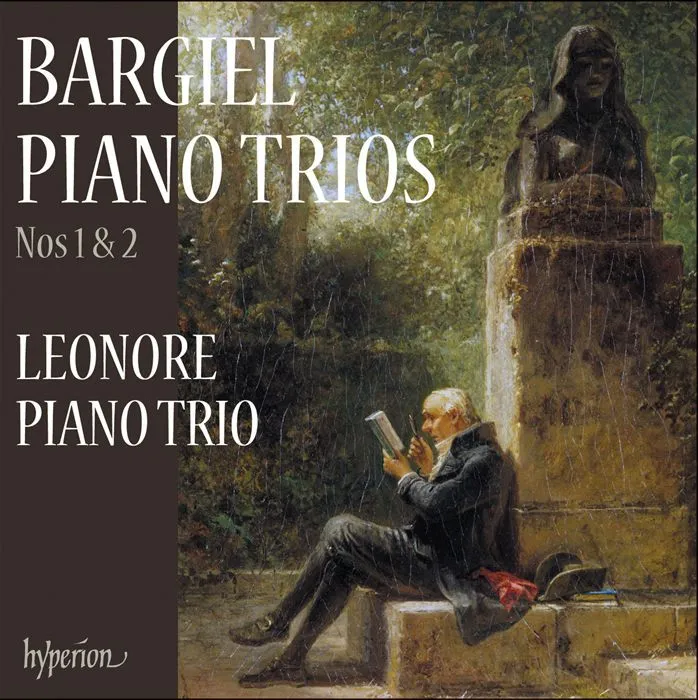
Bargiel Piano Trios Nos 1 & 2 Leonore Piano Trio Hyperion CDA68342 73:31 mins
For most of us, and despite his splendid C minor Octet having appeared on Hyperion as long ago as 1989 (CDH 55043), Woldemar Bargiel (1828-97) remains a name on the fringes of the musical universe. His main tutors were Moscheles and Gade, and his early supporters included Mendelssohn and (as Peter Avis points out in his highly informative liner note) his half-brother-in-law Schumann. He was a successful composer of piano miniatures (recorded on Marco Polo 8.223606) and chamber music (including four string quartets, available on CPO 5550952), and in 1871 conducted the premiere of his only Symphony (Toccata TOCC 0277).
Bargiel’s two piano trios are relatively early works, both dating from the 1850s. Not surprisingly, Schumann is the most profound influence here, although fascinating pre-echoes of Brahms can also be detected – the younger composer was then only in his early twenties. Yet for all that, there emerges a distinctive creative voice in the German Romantic tradition that deserves to be far better known.
The Leonore Trio is an outstanding ensemble, whose previous releases for Hyperion of music by Rimsky-Korsakov, Parry and Litolff have all been enthusiastically received. So often in the trio repertoire the piano is allowed to dominate, yet pianist Tim Horton, violinist Benjamin Nabarro and cellist Gemma Rosefield balance Bargiel’s middle-register-dominated textures with such exquisite sensitivity and timing there is never any hint of overbalancing. This is music that by its very nature requires gentle coaxing and affectionate warmth to sound its best, and the Leonore responds with playing that possesses a radiant inner glow. Indeed, it is difficult to imagine this music played more captivatingly, captured in beguilingly natural sound by Andrew Keener and David Hinitt.
Julian Haylock
More reviews
Vasily Petrenko conducts animal-themed music by Prokofiev and Saint-Saëns
Jurowski conducts orchestral works by Mahler and Strauss
Martin Yates conducts orchestral music by Chaminade
Martin Yates conducts Vaughan Williams’s Scott of the Antarctic with ‘appropriate majesty’